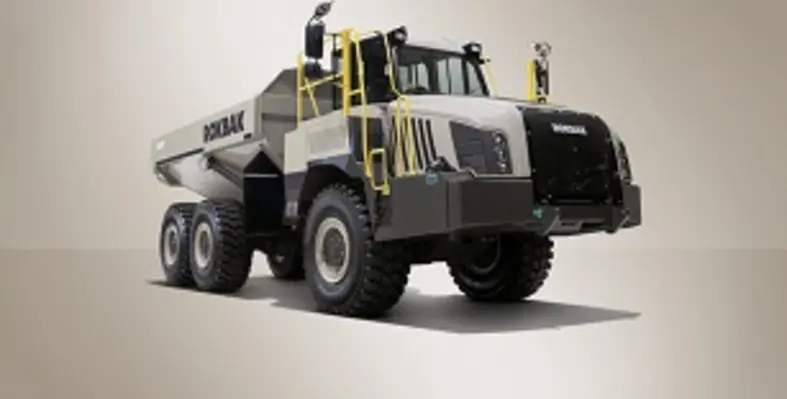Rokbak, a manufacturer of off-highway articulated haulers that are used in mining, quarrying, and construction applications around the world, has said that its latest products are designed keeping sustainability in mind
The company said that it has a commitment to minimising its ecological footprint and its sustainability goals showcase a dedication to environmental stewardship in the heavy machinery industry.
As part of the Volvo Group, Rokbak is aligned to the Science Based Targets initiative (SBTi). Specific aims include a 30% reduction in CO₂ by 2030, a 50% factory operations emission reduction by the same year and becoming net-zero by 2040. These incentives have influenced the design of Rokbak trucks, the daily operation of the Rokbak Motherwell factory and a strict adherence to the Rokbak sustainability roadmap.
Reducing impact on the environment has seen Rokbak employ strategies stemming from fuel consumption analysis, examining alternative fuels, extending maintenance cycles and lessening maintenance consumables. Furthermore, this research and development in sustainability has led to the reduction of total cost of ownership (TCO) for Rokbak customers.
The largest running expense for a machine is gasoline, and the Rokbak RA30 and RA40 EU Stage V engines result in up to 7% less fuel usage than the old EU Stage IV engines. This essentially translates to fewer environmental impact and cheaper running expenses. Both the lean burning engines and the verified low fuel consumption of Rokbak's articulated transporters. The RA40 delivers a class-leading 6,000 hours between gearbox fluid changes, while the RA30 gives an astounding 4,000 hours.
The hydrotreated vegetable oil (HVO), a fuel that enables clients to 'quick-hit' their own net-zero objectives, is compatible with the RA30 and RA40. HVO is a paraffinic bio-based diesel fuel made from various vegetable oils (waste cooking oil, rapeseed oil, palm oil, etc.) or animal fats. It is sometimes referred to as 'Renewable Diesel' or 'Green Diesel.' Although HVO shares many of the same chemical and physical characteristics as diesel, its composition is distinct from diesel and its low carbon content appeals to those looking for a sustainable fuel alternative. It is a cutting-edge method for producing premium bio-based diesel fuels without sacrificing fuel logistics, engines, exhaust aftertreatment systems, or exhaust pollutants. On a well-to-wheel study, HVO can reduce CO2 emissions by up to 90%.
Longer intervals between regular maintenance and infrequent fluid and part replacements result in less waste being dumped in landfills. Customers can stay on top of the vehicle with the use of maintenance and malfunction notifications, which also let them know when the unit has to be serviced again. Aside from enhancing sustainability measures and lowering TCO, buying components in advance and securing manpower boosts operational efficiency.
“When the customer buys a Rokbak hauler, they are acquiring a hauler that has been developed with sustainability in mind,” said Charlie Urquhart, Rokbak's product manager. “It is a hauler that has been manufactured on a site powered by green energy and redirects waste away from landfill.”
The Rokbak plant is now entirely powered by green energy. 95% of produced garbage is now diverted away from landfill as part of efforts to become accredited for a zero-waste-to-landfill policy.
“We are creating significant steppingstones towards a sustainable future,” said Urquhart. “And this not only results in less waste being generated, but also benefits the Rokbak customer’s wallet.”












